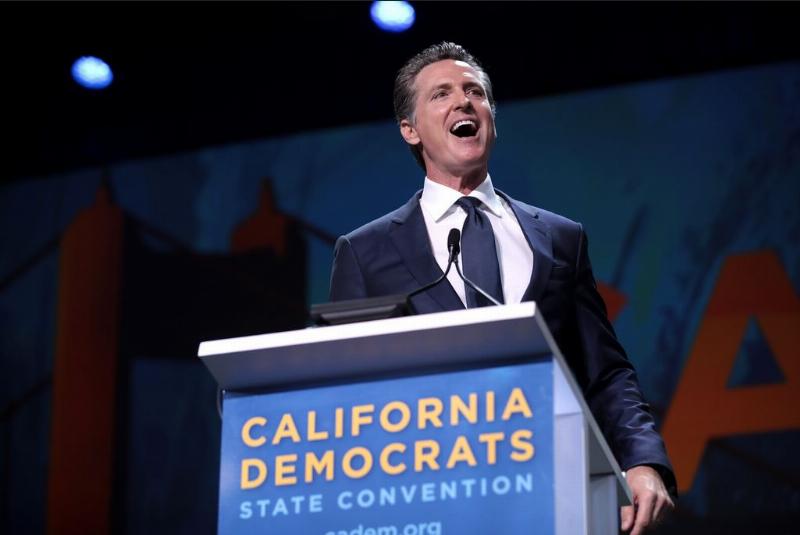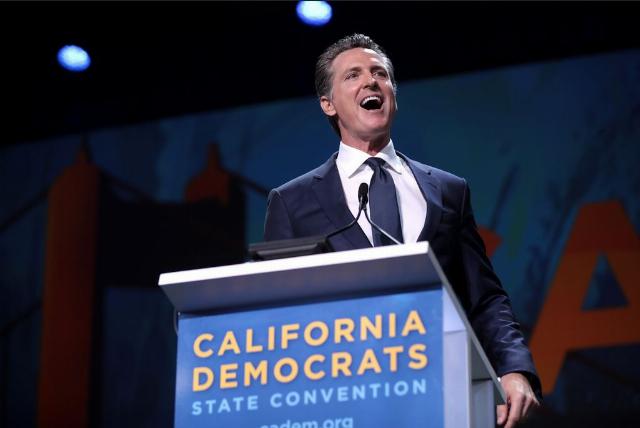


California Governor Gavin Newsom is suing President Trump and Secretary Hegseth over the National Guard deployment—and in doing so, he’s inviting a legal defeat of historic proportions.
Yet, a courtroom loss could trigger something far more consequential: a landmark Supreme Court ruling that cements the president’s authority to restore order when states refuse.
And here’s the irony: the California governor, who dreams of sitting in the Oval Office, may not want to win—and, based on the law, won’t.
Why? If this lawsuit makes it to the Supreme Court, the law is so decisively on Trump’s side that it would set a modern precedent—one that reaffirms broad presidential authority to federalize the Guard in times of unrest, even over state objection.
And that’s the last thing any rational progressive—assuming such a creature still exists—should want.
There’s no ambiguity here. The law is clear—and it’s not on Newsom’s side.
The Supreme Court has long recognized the president’s supremacy in foreign affairs and national defense. In United States v. Curtiss-Wright Export Corp., 299 U.S. 304 (1936), Justice Sutherland, writing for the Court, held that the president possesses “the very delicate, plenary and exclusive power” as the “sole organ of the federal government in the field of international relations”—a power that exists independently of congressional action.
This doctrine applies with full force to the president’s command and control of the military—particularly when invoking statutory authority to federalize the National Guard in defense of immigration enforcement personnel and operations, especially when those efforts are met with obstruction or violent resistance from local officials or foreign nationals.
Thus, when state and local actors interfere with lawful federal immigration enforcement—particularly during riots involving foreign nationals—the president’s authority reaches its constitutional zenith.
Deploying the National Guard under Title 10 and the Insurrection Act falls squarely within the executive’s well-established power to restore order and safeguard the nation’s sovereign interests.
In today’s climate of lawfare and obstructionist governance, that principle has never mattered more.
Trump’s move is squarely within these authorities. Federal ICE agents were attacked. Property was destroyed. Highways were blocked. Rioters waved the national flags of other countries—most notably Mexico—in a gesture directly at odds with their refusal to return to those very nations.
Why would they? In California, lawbreaking earns praise from the political establishment, and with violent crime routinely under-prosecuted, you can make out like a bandit. That beats a one-way ticket home any day.
Local officials refused to act decisively—in fact, they gave aid and comfort to the rioters, blamed federal law enforcement, and chanted the near-omnipresent incantation that the protests were “mostly peaceful.” Meanwhile, the Los Angeles police chief said the officers in blue were “overwhelmed.”
And yet Newsom’s lawsuit claims the move was “unlawful.” But this isn’t a legal strategy—it’s a stalling tactic. As long as the case lingers in court, Newsom gets headlines while quietly shopping for a judge willing to issue a temporary restraining order (TRO).
That’s why Trump’s parallel deployment of the Marines is a shrewd hedge: it ensures enforcement continues even if a rogue court attempts to block the Guard’s federalization.
But here’s the kicker no one else is talking about: Newsom’s legal theory undercuts one of the left’s loudest narratives from January 6, 2021—that Trump should have more quickly deployed the D.C. Guard without local consent.
You can’t have it both ways. Newsom’s suit, no doubt backed by various organs of the Democrat party, seemingly stands for the proposition that the National Guard cannot be deployed over the objection of local authorities. The hypocrisy is staggering. And the facts don’t lie:
Newsom’s fundamental objective isn’t judicial relief—it’s delay, optics, and plausible deniability. He wants to run out the clock, inflame public opinion, and pray the case becomes moot before it reaches the high court.
The last thing the modern left wants is a Supreme Court ruling that reaffirms the president’s authority to bypass obstructionist officials when they refuse to enforce federal law.
And if Newsom keeps pushing, that ruling may come anyway—enshrining in black-letter law what the Constitution made clear from the start.
Charlton Allen is an attorney and former chief executive officer and chief judicial officer of the North Carolina Industrial Commission. He is founder of the Madison Center for Law & Liberty, Inc., editor of The American Salient, and host of the Modern Federalist podcast. X: @CharltonAllenNC

Image: Gage Skidmore, CC BY-SA 2.0, via Flickr, unaltered.
